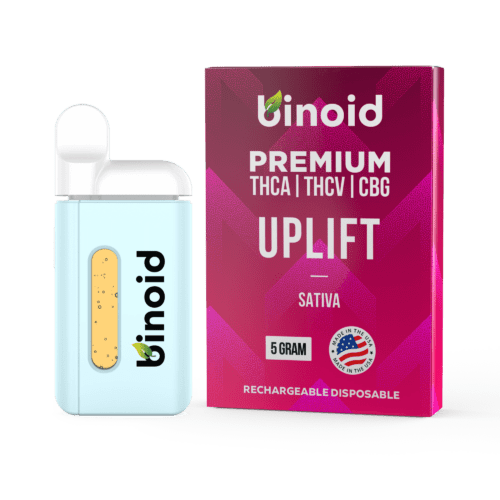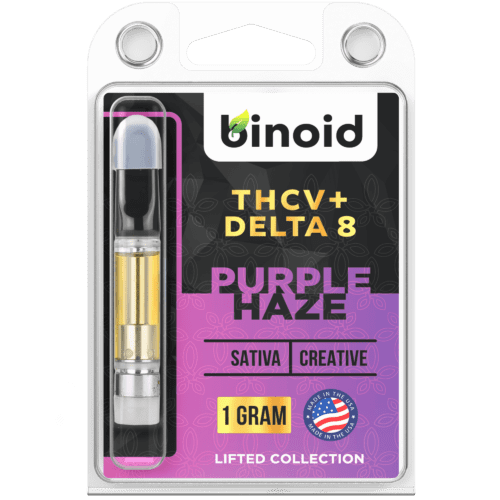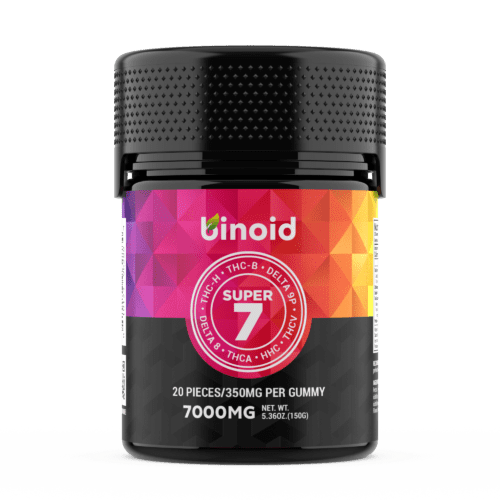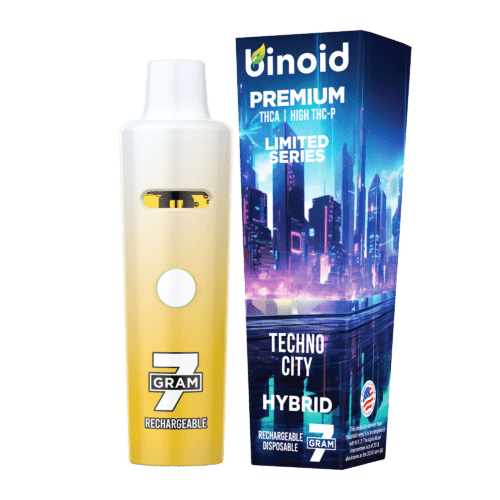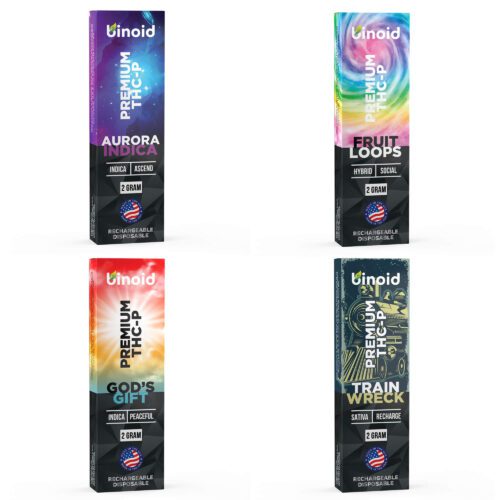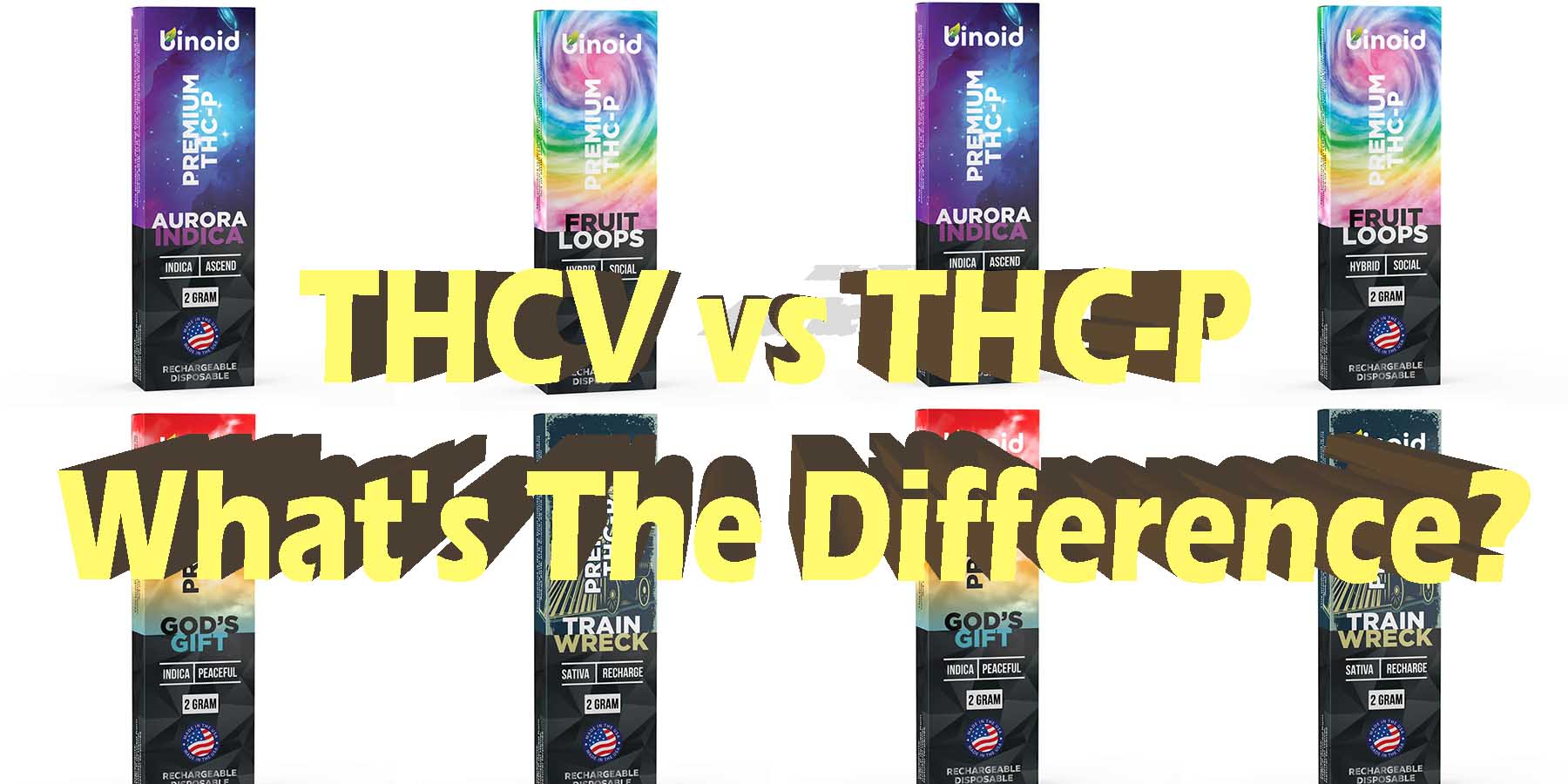
THCV vs. THC-P: What’s The Difference?
The world of hemp is expanding before our very own eyes, as an influx of cannabinoids are making their way onto the market, each offering its own dazzling properties that can offer dramatic effects in terms of how we feel. Tetrahydrocannabivarin (THCV) and tetrahydrocannabiphorol (THC-P) are two relative newcomers to the scene. Now, while you may think that they are extremely similar based on their names, the reality is that each behave very differently when absorbed into the body.
Most hemp enthusiasts who come to Binoid are seeking out specific properties since they have their own goals in mind. This is why it’s critical to understand the differences between these two cannabinoids. Both of them are federally legal and nontoxic, which means that you can confidently explore either, but still, one could be far more capable of suiting your particular needs than the other. This is especially true since their psychoactive properties are extremely different.
TO BUY THCV PRODUCTS CLICK HERE
Why Choose THCV?
THCV Origin?
Tetrahydrocannabivarin is a homologue of delta 9 THC, so it maintains a lot of structural similarities despite having ultimately different effects. THCV was first discovered alongside cannabidivarin (CBDV) in 1971. Over the next decade, scientists looked closely at THCV’s occurrence based on geographical locations. Data found that THCV-rich strains were more frequent throughout the African continent, specifically a South African cannabis strain having over 53% tetrahydrocannabivarin. Despite successful efforts through to resolute the origins of THCV, studies into its potential benefits were vastly absent throughout the decade of its unearthing.
THCV’s Psychoactive Properties
Tetrahydrocannabivarin has a higher boiling point than delta 9 THC at 428 degrees rather than 315 degree. This means that the high associated with it requires a higher decarboxylation level. But, more interestingly, THCV’s high is extremely dose-dependent.
- At lower doses, it’s a CB1 antagonist, so it won’t get you high at all, and might even potentially block other psychoactive cannabinoids from creating an intoxicating response.
- At higher doses, it converts into a CB1 agonist, thus becoming psychoactive, but not as psychoactive as delta 9. And, the high associated with THCV lasts for about half as long as that of delta-9.
THCV’s Non-Psychoactive Properties
Tetrahydrocannabivarin is a cannabinoid that prefers to attach to CB2 receptors, which are cannabinoid receptors found in the immune and digestive systems, which means that its properties likely pertain mainly to these processes of the body. While THCV has been found to possibly offer some anti-seizure activity through neuroprotectant activity, more notably, it seems to have a regulatory effect on blood sugar and insulin levels, which may be extremely valuable to diabetes research. Also seems to have a role in managing obesity, while possibly suppressing appetite and minimizing food cravings.
Purpose for Taking THCV
A lot of people are taking tetrahydrocannabivarin because it’s new and they are interested in seeing what it’s like. While THCV can deliver a high, and that’s obviously a big part of its commercial appeal, it is important to know that experiencing its psychoactive properties isn’t as straightforward as it is with other cannabinoids.
-
Product on sale
 Super 7 Gummies – 7000MG$39.97
Super 7 Gummies – 7000MG$39.97$59.99
Why Choose THC-P?
THC-P Origin
Tetrahydrocannabiphorol is a homologue of delta 9 THC discovered in December of 2019. It’s a very new cannabinoid that we are still learning about, but scientists have wasted no time analyzing it. It’s a minor cannabinoid found in trace amounts of the hemp plant.
THC-P’s Psychoactive Properties
THC-P is a CB1 agonist that may bind to these receptors about 31x as efficiently as delta 9 THC. Basically, this means that THC-P may be drastically more psychoactive than delta 9, causing a much stronger high. THC-P is so new that there are no studies on the exact qualities of its high. In other words, we can’t tell you based on data and research exactly what the high feels like.
THC-P and delta-9 appear so similar in terms of their structures that you may notice similar qualities when taking them. For instance, many people describe the high associated with delta 9 as euphoric, mellowing, and even soothing throughout the body.
THC-P’s Non-Psychoactive Properties
Researchers who discovered tetrahydrocannabiphorol did analyze this compound for its various properties. They discovered that its effects seem to mimic those of delta 9 THC, only at higher potency levels. Research shows that THC-P might be able to help manage the following since it works on both CB1 receptors in the nervous system and CB2 receptors in our digestive system:
- Pain
- Nausea
- Appetite
- Mood
- Sleep
Purpose for Taking THC-P
THC-P is another cannabinoid that most people are seeking out because of its recreational properties, as it may be powerfully intoxicating. Still, however, it offers other properties that make it fully worth experimenting with, as seen above.
-
Product on sale
 THC-P Vape Cartridge – Aurora Indica$30.99
THC-P Vape Cartridge – Aurora Indica$30.99$59.99
What is the Legality of THCV and THC-P?
The Farm Bill in 2018 legalized both tetrahydrocannabivarin and tetrahydrocannabiphorol throughout the United States through federal legislation. However, twelve states have banned delta 8 THC, and while the wording legislation is vague, it’s likely that THCV and THC-P are banned in these states as well:
- Alaska
- Arizona
- Arkansas
- Colorado
- Delaware
- Idaho
- Iowa
- Mississippi
- Montana
- Rhode Island
- Vermont
- Utah
What Products Do/Will THCV and THC-P Come in?
You will find that tetrahydrocannabivarin and tetrahydrocannabiphorol come in the same product forms, because both cannabinoids are converted into oil-based extracts that are easy to combine with other ingredients.
- Vape Carts: Cartridges, or carts, are 510-threaded to attach to standard vape pens, containing a vape oil in many different strain options.
- Disposable Vapes: Disposable vapes are pre-assembled vaping systems that never need to be recharged or refilled at any time.
- Tinctures: Tinctures are administered sublingually, being oil-based formulas in various strength options.
- Edibles: Edibles such as gummies are associated with a body high sensation and long-lasting effects.
- Flower: Flower refers to hemp flower buds infused with THCV or THC-P, in an abundance of strain options.
- Dabs: Dabs refer to potent concentrates that are vaporized with a dabbing device. They’re generally too potent for beginners.
- Capsules: You can also find THCV and THC-P oils in encapsulated form.
-
Product on sale
 THC-P Gummies$27.99
THC-P Gummies$27.99$59.99
Extra Comparison Notes:
- THCV and THC-P are two psychoactive cannabinoids that will both produce a high in the user. However, the nature and potency of each type’s psychoactive properties are quite unique from one another, which is why you should not use them interchangeably under the impression that they ultimately feel the same in the body.
- With either cannabinoid, the intoxicating effects that you may feel are highly dependent on the cannabinoid, but also on many other factors, including the strain of the product, the delivery method, the dosage amount, and your body’s unique response to cannabinoids.
- Both cannabinoids can result in a failed drug test, because each require THC-COOH to metabolize. THC-COOH is an enzyme that breaks down THC compounds, including delta 9 THC, and this is what standard drug tests are looking for rather than delta 9 itself.
- Avoid driving or operating heavy machinery after consuming either of these cannabinoids due to their intoxicating nature.
Final Decision: THCV and THC-P are Amazingly Powerful Hemp Derivatives
Overall, tetrahydrocannabivarin and tetrahydrocannabiphorol are each worth trying out if you’re open to experiencing new properties and effects associated with the hemp plant. If you’ve specific goals that you are seeking out, you may very well find that one of these two is far more useful as part of a daily routine than the other.
At Binoid, you can find a variety of both THCV and THC-P products to enjoy, while feeling confident that you’re getting the best options available. We go to great lengths to deliver top quality, as our THCV and THC-P are derived from organic hemp and have been fully lab-tested to guarantee proper purity and potency. So, what are you waiting for? Find the next exciting addition to your regimen today.
TO BUY THC-P PRODUCTS CLICK HERE
-
Product on sale
 THC-P Disposable Vape 2 Gram – Bundle$117.99
THC-P Disposable Vape 2 Gram – Bundle$117.99$199.96

